Recordation of Intellectual Property Rights by the Anti-Counterfeit Authority
The Anti-Counterfeit Act (the Act) requires recording of intellectual property rights (IPRs) relating to imported goods with the Anti-Counterfeit Authority (ACA). This process is known as recordation.
Recordation applies to all forms of intellectual property and irrespective of where they are registered. Consequently, trade importation of goods with unrecorded IPRs is an offence. Personal goods and those not meant for Kenya (whether only passing through or sent here before being sent elsewhere), do not have to be recorded.
Application for recordation
The application may be made by the IPR owner, importer, or its agent. Commercial importers are required to ensure recordation of the IPRs of their imports.
The application should identify the applicant and where the goods are made. It should be accompanied by the IPR’s registration certificate, a sample or image of the goods, and application fees.
Corporates must provide full details of their directors or partners together with certified copies of their identity documents, and a copy of their registration or incorporation certificate. If the applicant is an individual, they must provide certified copies of identity documents.
The application is through the ACA’s online platform—AIMS (ACA’s Integrated (IPR) Management System). A foreign IPR owner may by power of attorney appoint an agent to apply. ACA will also allow foreign IPR owners to select from accredited agents but is yet to clarify how accreditation will work.
On receiving an application, ACA has 30 days to approve or deny it. The recordation is valid for one year from the date of approval, unless the registration of the IPR expires earlier.
ACA is supposed to issue an anti-counterfeit security device as a certification mark. Indications are that ACA will roll this out later possibly jointly with another agency. We will update you once ACA issues further guidelines.
In practice, ACA issues an IPR registration certificate. IPRs relating to Kenyan goods may also be freely recorded to protect local manufacturers from counterfeit imports.
Changes in the IPR
Recordation details should be updated on changes to the name or ownership of IPRs. Curiously, a new IPR owner must notify ACA irrespective of whether it wishes to continue or discontinue existing recordations.
结论
Recordation is intended to prevent the importation of counterfeits into Kenya. This is envisioned as protecting local consumers and manufacturers from harmful counterfeits. ideally, it should also enhance protection of intellectual property rights by countering passing off.
We note the thirty-day approval period may cause port delays or restrict flow of goods. This period should be shortened to ensure ease of doing business.
点击下载
免责声明:
本简报重点介绍立法和政策变化,仅供一般使用。它无意在发送者和接收者之间建立律师-客户关系。它不构成法律建议或法律意见。在未事先征求律师意见的情况下,您不应根据本法律更新中所包含的任何信息行事或依赖这些信息。



One comment
Pingback: Recordation of Intellectual Property Rights by the Anti-Counterfeit Authority – Legal Insights and Trends In Kenya